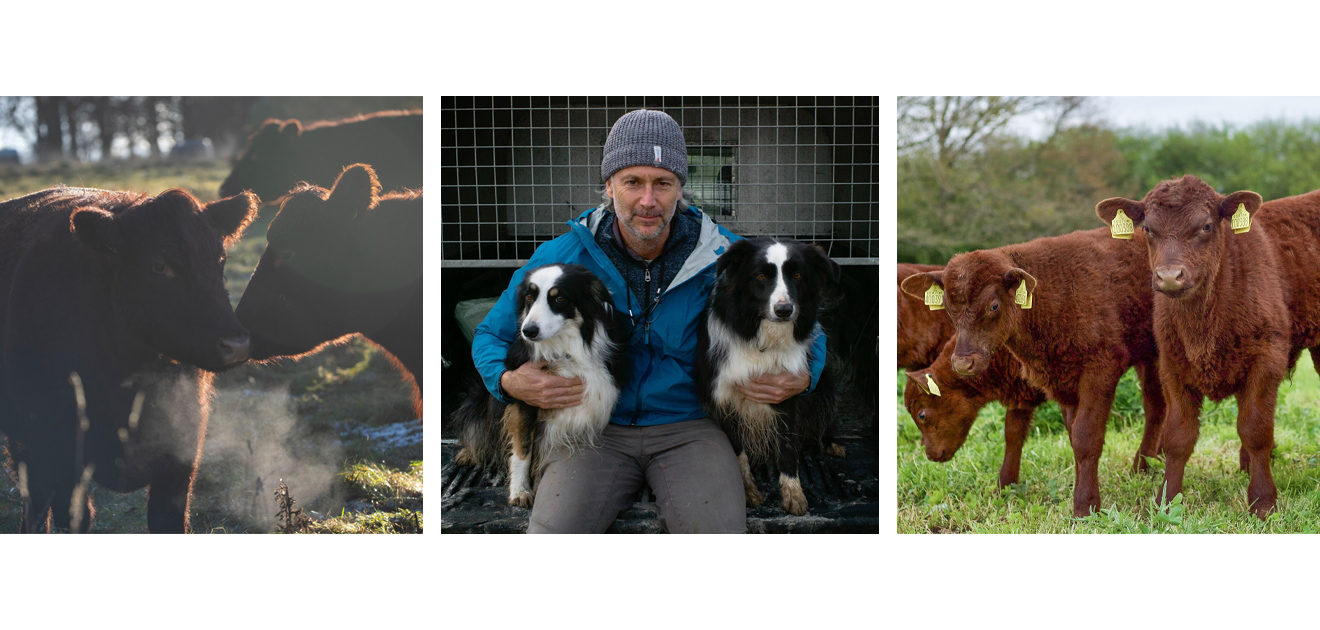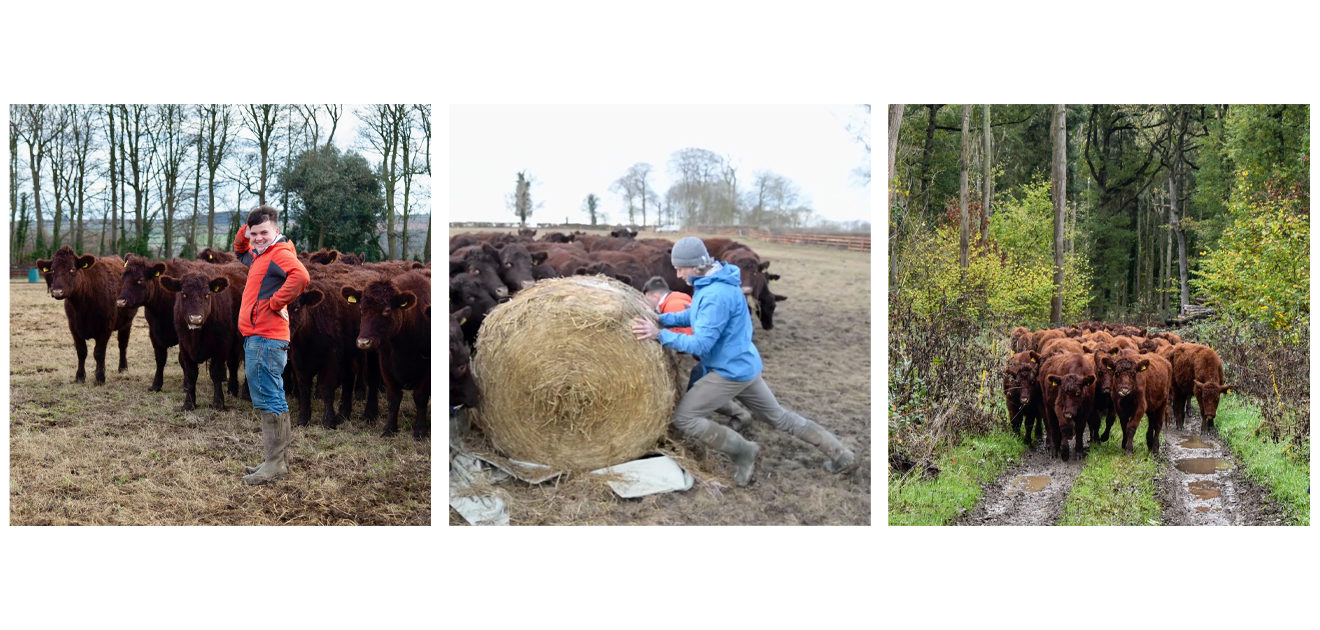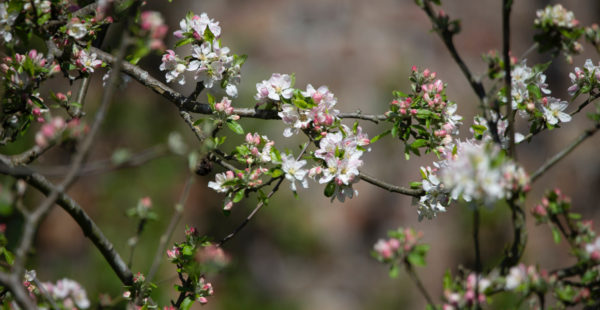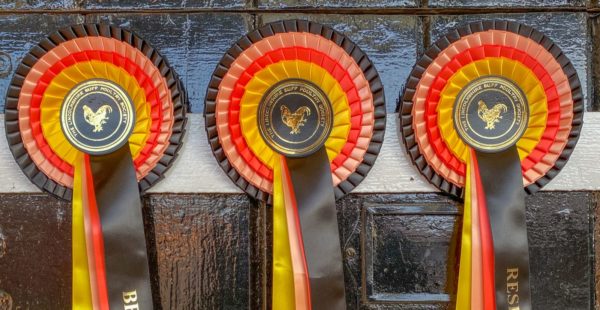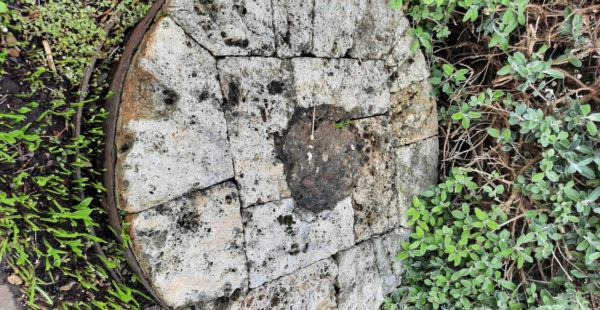Soggy Pastures, Summer Calving & Pavlov’s Jacket: a Catch-Up with Darren
Meteorological spring is weeks away, the snowdrops, aconites and honeysuckle are in bloom and our thriving herd of native-breed Lincoln Red cattle is reaching the end of another winter out on the land. We caught up with Herd Manager Darren MacDonald for the latest news from the pastures.
“Winter has been OK,” said Darren. “As we speak, I’m looking at the lovely wet sleet coming down. It’s been a very wet winter and we’ve had to change the grazing plan around due to saturation. When the fields are too boggy, it’s not conducive to anything. Grazing can damage the ground too much.
“Some of the young cattle stayed out on the pasture but we had to bring the main herd into Keal for a while. Water is more of an issue than temperature but you never know what’s coming. We’ve made a grazing plan all the way to 2025 but it’s a constant thinking game. It can be too wet or too dry or snow can come and cover the grass.
“My family arrived in the UK last week – my wife, Emma, and two-year-old Eli. I might start using Eli as there’s plenty of work to do! He certainly enjoys the turkeys and the chickens and the farming lifestyle is cool for a kid. Emma’s a watercolour artist and she’ll get into painting landscapes and wildlife here. She got commissioned to paint birdlife back home in South Africa. She’s got a real talent.
“It was a good decision to come to the UK. Six months without the family was hard. Now they’re here, I’ve got my support structure back, the trees are coming back to life and I can see the beauty in the landscape. I’ve also got my two border collies here now. They’re loving it. They’re having a party with the new surroundings and smells. They’re used to cattle and they’ve been introduced to the Reds.
“They’re proper working dogs and they’ve got a really strong round-up instinct. They’ve been practising rounding up chickens which don’t mind the dogs at all. The collies are both three-years old and they’re brother and sister. Skye is named for the Scottish island where the MacDonalds originated. Lhotse is named for the mountain next to Everest. Everest was also the name of an older dog on the farm in South Africa and Lhotse was next in line to him.

